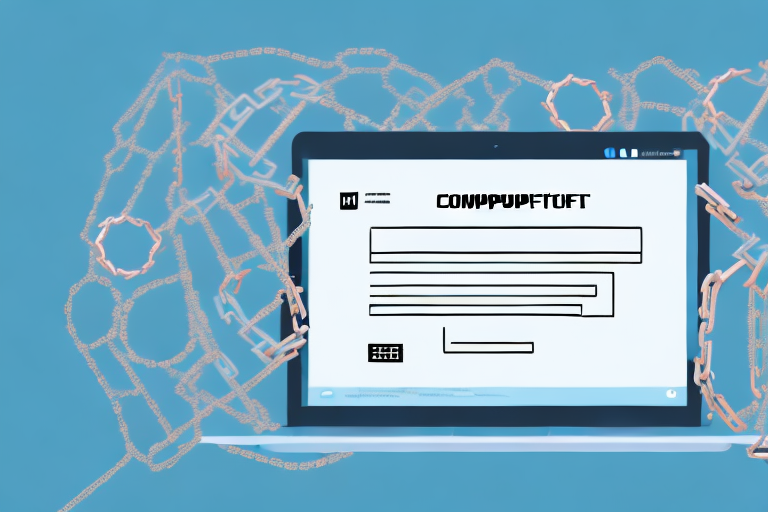Online wills have gained popularity in recent years, offering people a convenient and accessible way to create their estate plans. However, there are several misconceptions surrounding online wills that prevent individuals from embracing this modern approach. In this article, we will explore the basics of online wills, debunk common misconceptions, highlight their advantages, discuss potential drawbacks, and share tips for creating an effective online will.
Understanding the Basics of Online Wills
An online will is a digital document that allows individuals to outline their wishes regarding the distribution of their assets after their death. It serves as a legally binding testament to ensure that their estate is handled according to their desires. Wills online Australia are typically created through user-friendly platforms that provide templates and guidance, making the process straightforward and accessible.
When creating an online will, individuals have the convenience of drafting and customizing their estate plans using online platforms. These platforms offer a range of features that make the process easier, such as pre-designed templates, step-by-step guidance, and the ability to save and update the document as needed.
What is an Online Will?
An online will is a digital alternative to the traditional paper-based will. It allows individuals to draft and customize their estate plans using online platforms. With the advancement of technology, online wills have gained popularity due to their convenience and accessibility.
Online wills provide individuals with the flexibility to create and update their estate plans at their own convenience. They can access their documents from any device with an internet connection, making it easier to make changes or additions as their circumstances evolve over time.

The Legal Validity of Online Wills
Contrary to popular belief, online wills are indeed legally valid in most jurisdictions, including the United States. As long as they meet the legal requirements, such as being signed and witnessed appropriately, online wills hold the same legal weight as their paper counterparts.
Many online will platforms have implemented strict security measures to ensure the authenticity and integrity of the documents. They may require users to go through identity verification processes, utilize encryption technology to protect sensitive information, and store the documents in secure servers.
It is important for individuals to familiarize themselves with the specific legal requirements of their jurisdiction when creating an online will. Some jurisdictions may have additional regulations or restrictions that need to be followed to ensure the validity of the document.
Furthermore, it is advisable for individuals to consult with an attorney or legal professional to ensure that their online will meets all the necessary legal requirements and adequately reflects their wishes. Legal professionals can provide guidance and review the document to ensure its validity and effectiveness.
In conclusion, online wills offer individuals a convenient and accessible way to create and customize their estate plans. With the proper understanding of the legal requirements and the assistance of legal professionals, individuals can confidently use online platforms to create a legally valid and comprehensive online will.
Debunking Misconceptions About Online Wills
Creating a will is an essential part of estate planning, and with the advancement of technology, online wills have become a popular option. However, there are still many misconceptions surrounding online wills that prevent people from considering this convenient and cost-effective solution. Let’s take a closer look at some of these misconceptions and debunk them. Visit https://www.montana.edu/estateplanning/ to get more about estate planning.
Misconception 1: Online Wills Aren’t Legally Binding
One of the most common misconceptions about online wills is that they lack legality. This misconception often stems from a lack of understanding about the legal requirements for a will to be valid. In reality, online wills are legally valid as long as they meet the necessary requirements.
When creating an online will, it’s crucial to follow the proper procedures, such as signing and witnessing. These steps ensure that the will complies with the legal formalities and can hold up in court just like any other will. Online will platforms often provide clear instructions on how to execute the will correctly, making the process straightforward and foolproof.
Furthermore, many online will platforms collaborate with experienced estate planning attorneys to ensure that their templates and processes comply with state laws. This collaboration adds an extra layer of assurance that your online will is legally binding.
Misconception 2: Online Wills are Only for Simple Estates
Another misconception is that online wills are only suitable for individuals with simple estates. This notion couldn’t be further from the truth. While online wills may indeed be ideal for straightforward estate plans, they can also cater to complex situations.
Online platforms often provide comprehensive templates that cover a wide range of scenarios. Whether you have a blended family, own multiple properties, or have specific wishes for charitable donations, online wills can accommodate your needs. These platforms allow you to customize your will to reflect your unique circumstances, ensuring all aspects of your estate plan are addressed.
Moreover, online wills often include features that prompt you to consider important factors that you might overlook when creating a traditional will. For example, they may ask you to designate guardians for minor children or specify your preferences for end-of-life care. By guiding you through these considerations, online will platforms help you create a thorough and comprehensive estate plan.

Misconception 3: Online Wills are More Prone to Errors
Some people believe that online wills are more prone to errors compared to traditional wills prepared by attorneys. However, both types of wills can contain errors if not executed properly.
Online will platforms understand the importance of accuracy and strive to minimize the risk of errors. They often provide guidance throughout the process, helping users navigate potential pitfalls. These platforms may include explanations and tips to ensure that you understand the implications of your choices and make informed decisions.
Additionally, individuals using online will platforms can seek legal advice when needed. Many platforms offer access to experienced estate planning attorneys who can review your will and provide guidance. This option allows you to have the peace of mind that your online will is error-free and legally sound.
It’s worth noting that even traditional wills prepared by attorneys can contain errors if not properly executed or updated. The key to avoiding errors lies in attention to detail and seeking professional assistance when necessary, regardless of whether you choose an online will or a traditional approach.
In conclusion, online wills are a valid and reliable option for creating an estate plan. By debunking these misconceptions, we hope to encourage individuals to explore the convenience and accessibility of online will platforms. Remember, estate planning is a crucial step in securing your legacy, and online wills can help you achieve that with ease and confidence.
The Advantages of Online Wills
Convenience and Accessibility
One of the main advantages of online wills is the convenience they offer. Individuals can create their wills from the comfort of their homes, at any time that suits them. Online platforms allow users to save progress, revisit, and make updates whenever necessary. This accessibility eliminates the need for multiple visits to attorneys’ offices and streamlines the process.
Imagine sitting on your couch, sipping a cup of coffee, and creating your will with just a few clicks. Online wills provide the convenience of avoiding the hassle of scheduling appointments and commuting to attorneys’ offices. You can take your time to carefully consider your decisions and ensure that your wishes are accurately reflected in your will.
Furthermore, online will platforms often provide user-friendly interfaces that guide you through the process step by step. They offer clear instructions and explanations, making it easier for individuals who may not have legal expertise to create a comprehensive will.
With online wills, accessibility is no longer a barrier. Whether you’re a busy professional with limited free time or someone who prefers the comfort of their own home, online platforms make estate planning accessible to everyone.
Affordability of Online Wills
Another significant advantage of online wills is their affordability. Traditional estate planning can be costly, with attorney fees adding up quickly. Online will platforms often offer packages at a fraction of the price, making estate planning accessible to a wider range of individuals.
By opting for an online will, you can save a substantial amount of money that would have otherwise been spent on attorney fees. This cost-effectiveness allows individuals with limited financial resources to still have a legally binding will in place.
Moreover, online will platforms may offer additional features at no extra cost. Some platforms provide educational resources, such as guides and FAQs, to help users better understand the estate planning process. This added value enhances the overall experience and ensures that individuals feel confident in creating their wills without breaking the bank.
With the affordability of online wills, there is no longer a financial barrier preventing individuals from securing their assets and ensuring their loved ones are taken care of.

Flexibility and Ease of Updates
Online wills provide the flexibility to make updates whenever there is a change in circumstances. Whether it’s adding a new beneficiary or modifying distribution percentages, online platforms make updating wills quick and straightforward. This flexibility ensures that the estate plan remains up to date, reflecting the individual’s current wishes.
Life is constantly changing, and so are our circumstances. With traditional wills, making updates can be a cumbersome process involving multiple visits to attorneys’ offices and incurring additional fees. However, with online wills, you have the power to make changes with ease.
Imagine you have a new addition to your family, and you want to include them as a beneficiary in your will. With an online platform, you can simply log in, make the necessary updates, and ensure that your new family member is included in your estate plan.
Furthermore, online will platforms often provide secure storage for your will, allowing you to access and update it whenever needed. This eliminates the risk of misplacing or losing physical copies of your will, providing peace of mind that your wishes are securely stored and easily accessible.
With the flexibility and ease of updates offered by online wills, you can adapt your estate plan to match your evolving life circumstances, ensuring that your assets are distributed according to your current wishes.
Potential Drawbacks of Online Wills
Limitations in Complex Situations
While online wills can accommodate many scenarios, they may have limitations in complex situations. For estates involving intricate trusts, tax planning, or unique assets, it’s essential to seek legal advice from an attorney who specializes in estate planning. They can provide the expertise and guidance necessary to navigate any complexities.
Risk of Misinterpretation
Another potential drawback of online wills is the risk of misinterpretation. Without the guidance of an attorney to explain the legal language and implications, individuals may misunderstand certain clauses or overlook critical details. It’s crucial for individuals to carefully review their online wills and seek clarification when unsure.
Tips for Creating an Effective Online Will
Ensuring Your Will is Legally Valid
To ensure your online will is legally valid, follow the specific requirements set forth by your jurisdiction. This often includes signing the will in the presence of witnesses and ensuring they also sign accordingly. Familiarize yourself with the legal guidelines or consult an attorney to guarantee compliance.
Regularly Updating Your Will
An effective online will should be regularly reviewed and updated. Life circumstances, such as the birth of children, marriage, divorce, or the acquisition of new assets, can necessitate modifications to your estate plan. By regularly reviewing and updating your online will, you ensure that it accurately reflects your current wishes.
Seeking Legal Advice When Necessary
While online wills offer convenience and accessibility, it’s vital to seek legal advice when necessary. If you have a complex estate, substantial assets, or any concerns regarding your will, consulting with an attorney who specializes in estate planning will provide the guidance and peace of mind you need.
In conclusion, online wills are a legitimate and practical option for individuals looking to create their estate plans. By understanding the basics, debunking common misconceptions, and exploring their advantages and potential drawbacks, individuals can make informed decisions when it comes to their online wills. Remember to follow the necessary legal requirements, regularly review and update your will, and seek professional advice when needed. With these guidelines in mind, you can confidently embrace the convenience and accessibility of online wills to secure your legacy.
See Also: Ensuring the validity of your online will: key considerations.

